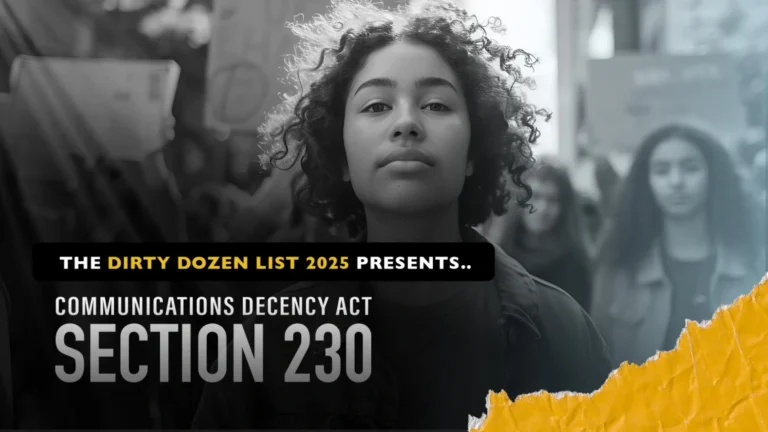Worldwide recognition of pornography’s harms is growing!
The Council of Europe is an international organization set up after World War II to uphold human rights and democracy in Europe, and it has tremendous influence, withing its 47 member states and beyond.
Recently, the Standing Committee of the Parliamentary Assembly of the Council of Europe turned its attention to the impacts of pornography. In a unanimous committee vote, they passed the first ever motion for a resolution and report in the Council of Europe addressing the harms of pornography—entitled “Gender aspects and human rights implications of pornography.” (This motion has not yet been discussed in the Assembly and commits only those who have signed it.)
This is a historic step forward!
The resolution was framed based on finding in the Committee’s report which includes a substantial review of research regarding the harms of pornography, particularly to adolescents. It also demonstrates how pornography contributes to sexist attitudes and affirms that there are links between sex trafficking and pornography.
This provisional resolution states, in part:
Research shows that pornography contributes to shaping people’s mindsets on sexuality and perceptions of gender roles, often engendering and perpetuating stereotypes thereby undermining gender equality and women’s self-determination by conveying an image of women as subordinate to men, as objects and trivializing violence against women. Young people are particularly exposed to this risk, as they rely on pornography as a source of information…
Powerful Recommendations
The Resolution drafted by the Standing Committee called for several important actions, including but not limited to the following:
- ensure that all those depicted or otherwise participating in the production of pornographic content have given their free and informed consent to its distribution, in particular by requiring producers to prove verified consent before any image is made public;
- within the limits of regulations on the use of private data, require online pornography providers to collect and store the identity and contact details of persons uploading pornographic material for public diffusion, with a view to facilitating criminal prosecution in cases where participants have not consented to diffusion or the material originates from trafficking in human beings, child abuse or other criminal activity;
- include provisions banning the use of pornography in the workplace in legislation on sexual harassment and other forms of harassment in the workplace, and require employers to install and utilize internet filters to this end;
- require public libraries and schools to install internet filters to block pornography;
- consider introducing the obligation for manufacturers and distributors of computers and portable devices to activate anti-pornography filters by default (as opposed to pre-installed but deactivated filters, which are currently the norm);
- require internet providers to apply an Opt-in or opt-out clause, asking customers to choose whether pornography should be freely accessible or not through their service;
- consider introducing country-wide age verification to access pornography, or a legal obligation for companies distributing pornography to verify age;
- provide adequately funded exit services to people who wish to leave the sex industry, including pornography;
- promote and provide counselling and support services for compulsive users of pornography.
Concerns
Unfortunately, the draft resolution and its accompanying report are not perfect—for example, the report includes a segment about “ethical” pornography which is not sufficiently nuanced to acknowledge the serious arguments against such a concept.
There is no such thing as “ethical” pornography. So-called “ethical” or “feminist” pornography supposedly portrays relational, non-violent, freely consentual sex as opposed to the mainstream content which is dominated by violence, incest, and racism themes. Whether “ethical” pornography lives up to its rosy characterizations is a matter of considerable debate. That debate aside, all pornography is based on sexual objectification, and in practice even “ethical” pornography is only an on-ramp to more degrading and exploitative themes in pornography. Using functional MRI, a 2015 study by researchers at Cambridge University found that compulsive sexual behavior is characterized by novelty-seeking, conditioning, and habituation to sexual stimuli in males—meaning users need more extreme content over time in order achieve the same level of arousal. In fact, since 2009, there have been more than 50 studies linking pornography use to a range of detrimental impacts on the brain’s structure and function, including the mesolimbic dopamine system. While a user may start watching “relationship-based” pornography with continued use consumers are likely to escalate to more shocking or degrading content in order to achieve arousal over time. Thus, the idea of “ethical” pornography is not a solution, because the vast majority of users are likely to migrate to consuming content that involves a wide range of exploitive, violent, or risky sexual themes.
NCOSE is not fully endorsing every detail of this report and resolution, but applauds the significant step forward in global recognition that pornography has harms that must be addressed.
In addition to this latest development, already 15 states in the in the United States of America have passed formal resolutions noting pornography as a public health hazard. The OSCE (Organization for Security and Cooperation in Europe) Office for Democratic Institutions and Human Rights (ODIHR) has gathered experts to publicly discuss cross-linkages between human trafficking and pornography. The Colombian Congress has held a formal briefing to understand the links between pornography and sexual violence. Further, France, Germany, and the United Kingdom have introduced, and to varying degrees implemented legislation calling for age verification to prevent childhood pornography exposure. And much more!
We are glad to celebrate every step forward towards a world that acknowledges the harms of pornography and forms policy and practices accordingly.



